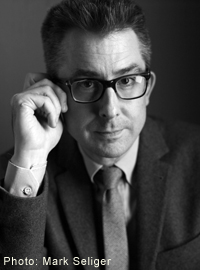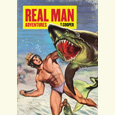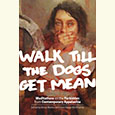Freeing His Father’s Ghost
In this scorching debut memoir, Michael Hainey traces the haunting mystery of his father’s death
After Visiting Friends: A Son’s Story relays the story Michael Hainey was told about his father’s mysterious death at thirty-five and reports the truth. Bob Hainey, the “night slot man” in newspaper terms, worked as a copy-desk chief at the Chicago Sun-Times. Michael was six when in 1970 his Uncle Dick brought the news that Bob had died of a heart attack on the Chicago sidewalk, alone in the middle of the night, after visiting unnamed friends. For decades after Bob’s sudden death, Dick, along with Bob’s close friends and colleagues at the paper, were tight-lipped, denying any further knowledge of what had occurred that night. When the author’s mother pushed one of her late husband’s friends for more information, he explained vaguely that Bob had been moving a buddy’s furniture. She let the subject drop.
 From childhood, Hainey felt the details didn’t add up, but he was in his thirties before he began, without his mother’s knowledge, to look for the full story. “How his death hung over that house,” Hainey writes. “It’s part of what I know to be true—your absence is greater than your presence.”
From childhood, Hainey felt the details didn’t add up, but he was in his thirties before he began, without his mother’s knowledge, to look for the full story. “How his death hung over that house,” Hainey writes. “It’s part of what I know to be true—your absence is greater than your presence.”
In “What You Are,” the book’s opening chapter, Hainey describes visiting his maternal grandmother back in Chicago years after he’d left home. There, his grandmother told him about their Polish family’s custom, on a boy’s first birthday, of giving him a choice between a coin, shot glass, and crucifix; the one he picks “will be his life.” “What did I choose?” Hainey asked. His grandmother said he’d slammed down his fist, causing all three items to crash to the floor. When Hainey mentioned that he’d never heard this story, his grandmother replied, “There’s lots of stories you haven’t heard.”
In dark, poetic, and often brilliant prose, Hainey’s wrenching autobiography sets out to capture and free his family’s ghosts. Combing through old documents and conducting hundreds of interviews, he tries to discover what happened the night his father died, including the specific circumstances surrounding the death. Ultimately he is trying to discover his missing father. Throughout Hainey’s childhood he longed for a man “who will tell me the knowledge I should know, tell me of the ways of the world, guide me.” What he got instead was a mother incapable of addressing the reality of her husband’s choices. “Family?” Hainey recalls asking her. “Secrets? Sometimes I think they are the same thing.” After their father’ death, he writes, he and his own brother weren’t so much siblings as “prisoners serving the same sentence: life in solitary.”
 Unrelenting in his pursuit, Hainey, now deputy editor at GQ, eventually arrives at the truth, though the truth offers no respite. He doesn’t know if he’s prepared to share his findings with his mother, fearing that “it will be her undoing. And ours. She’ll cast me out. And then where will I be? A fortysomething son who has crushed his mother and broken her heart and lost her love.” He comes to view his quest and, essentially, his own character as “the epitome of selfishness.”
Unrelenting in his pursuit, Hainey, now deputy editor at GQ, eventually arrives at the truth, though the truth offers no respite. He doesn’t know if he’s prepared to share his findings with his mother, fearing that “it will be her undoing. And ours. She’ll cast me out. And then where will I be? A fortysomething son who has crushed his mother and broken her heart and lost her love.” He comes to view his quest and, essentially, his own character as “the epitome of selfishness.”
He writes in acute detail about his feelings and memories but, with the exception of four paragraphs describing interactions with a woman he dated in graduate school, never mentions his connection to anyone to whom he’s not related either by blood or through his obsessive hunt to uncover his father’s past. He offers no clues about how his lifelong search for his father has affected his relationships as an adult. Nevertheless, his focus on the family into which he was born pays off in his gorgeous, heart-wrenching writing about what becomes of his relationship with his mother once there are no more secrets between them. In the end, it’s not only learning the truth that sets Hainey free from the past; it’s his willingness to forgive and accept imperfections: in his father, his mother, and, by extension, himself.
Michael Hainey will discuss After Visiting Friends at the twenty-fifth annual Southern Festival of Booksheld in Nashville October 11-13, 2013. All events are free and open to the public.


